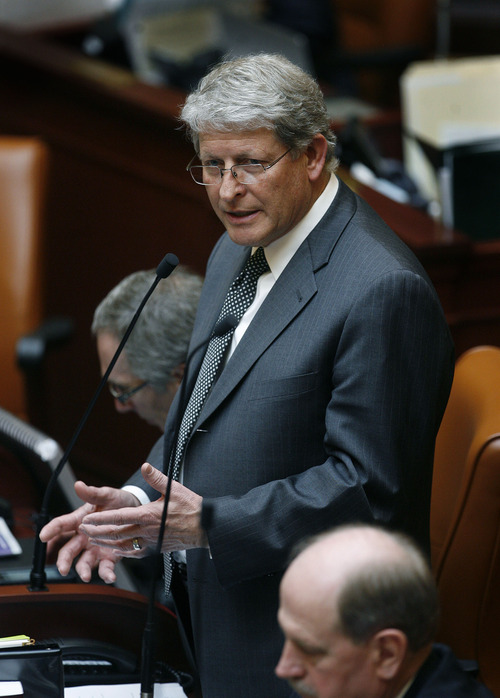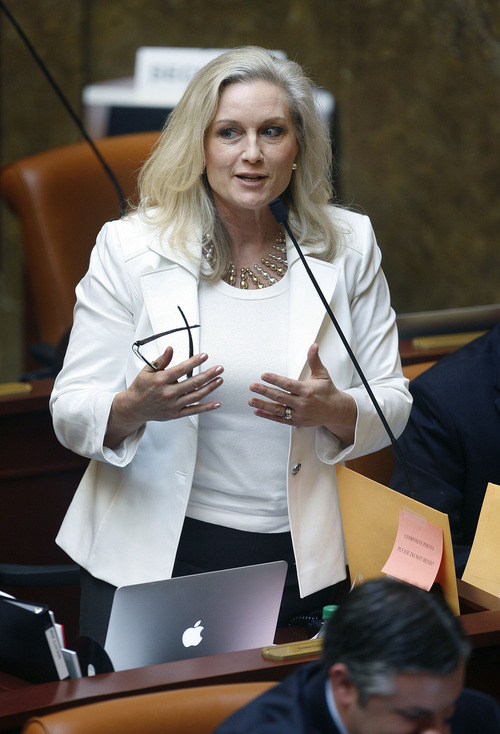This is an archived article that was published on sltrib.com in 2013, and information in the article may be outdated. It is provided only for personal research purposes and may not be reprinted.
House members overwhelmingly approved a bill Wednesday that would give police another tool to capture Internet sexual predators by making electronic conversations, deemed to entice minors, an arrestable offense.
Rep. Curt Webb, R-Logan, proposed HB31 in conjunction with the Utah Attorney General's Office and Cache County attorney after he was shown Internet-based conversations that were graphic in nature and, in his mind, showed clear intent that the perpetrator planned to commit a sex crime against a minor.
"Enticing by itself is a crime," Webb said. "That is what the bill is designed to do."
It passed 58-16, but not until after a lengthy discussion led by Rep. Brian King, D-Salt Lake City, who worried about criminalizing thought or expression that may not necessarily lead to an actual sex crime against a minor.
"We have to be very careful here," King, an attorney, said. He said he viewed the bill as moving down the road toward thought crime and erosion of free speech and civil liberties.
Rep. Dana Layton, R-Orem, voted to support the bill despite concerns about flirty messages that could be exchanged between an 18-year-old and a 17-year-old. She also noted it is legal to marry in Utah as early as 15 and said that those marriages wouldn't happen "without some enticing going on somewhere."
Webb said the revision to existing law on Internet crimes against minors was also needed to include the exploding universe of electronic devices used in communication.
Marina Lowe, legislative policy analyst with the American Civil Liberties Union of Utah, said Webb had approached them with his bill but her organization hadn't taken a position on it. She said, however, they had "concerns" about the legislation.
The bill will now move to the Senate.
Twitter: @davemontero







